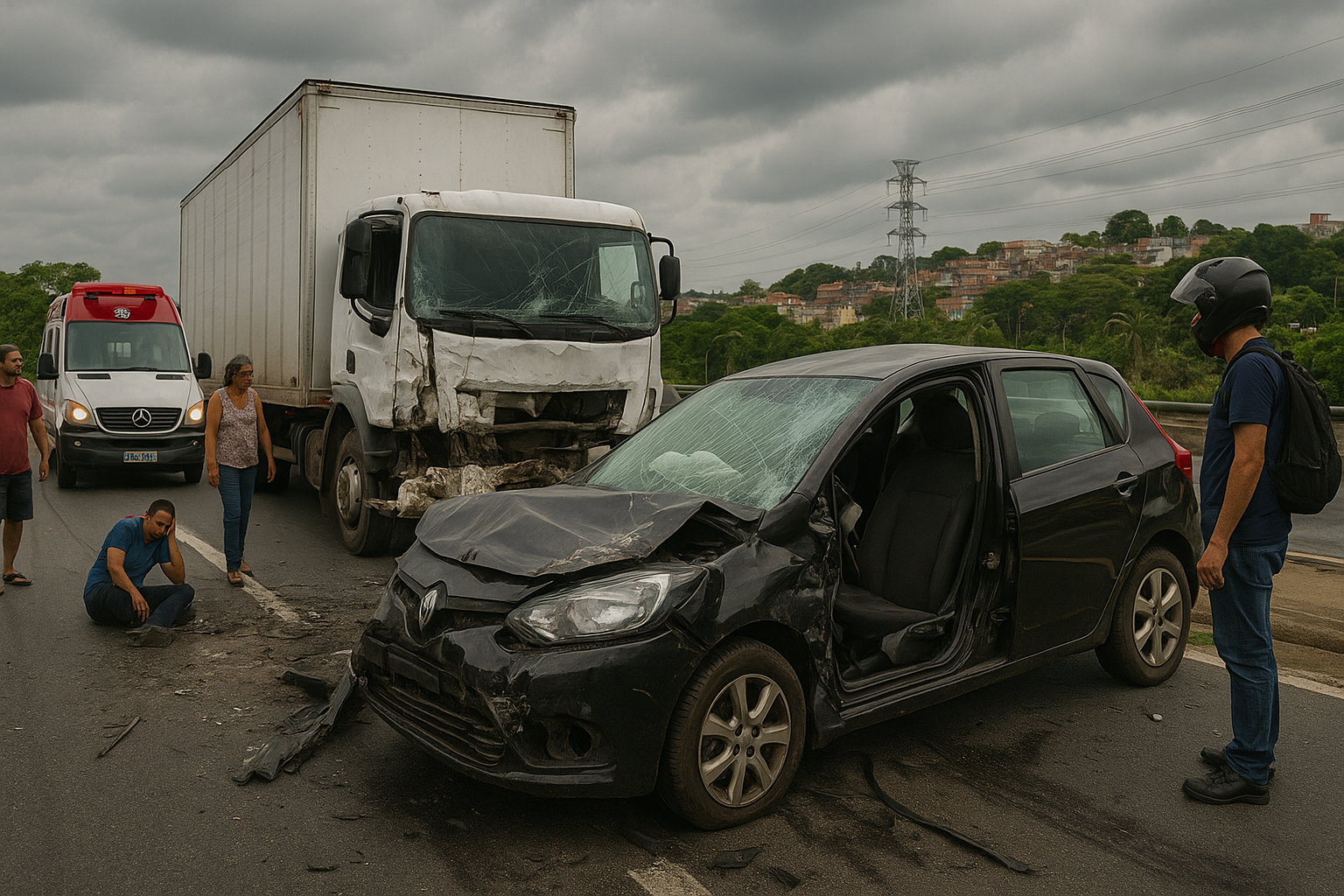Brazil’s Road Crisis: The Human and Economic Toll of Traffic Injuries Uncovered
A World Bank study reveals that road crashes in Brazil claim over 34,000 lives annually, cost nearly 4% of GDP, and impose massive human suffering through death and disability. The report urges urgent reforms in transport, stronger political commitment, and safer infrastructure to break this cycle.

Brazil’s struggle with road safety is laid bare in The Burden of Road Traffic Injuries in Brazil: Evidence for Policy, a major report produced by the World Bank’s Global Road Safety Facility in collaboration with the Universidade Federal de Goiás and other research partners. Far from being a string of isolated tragedies, road crashes are revealed as a national crisis that silently drains lives, overwhelms hospitals, and consumes a staggering portion of Brazil’s economic resources. Drawing on hospital surveys, insurance records, transport statistics, and global health metrics, the study positions road traffic injuries alongside chronic diseases as one of the country’s most pressing public health emergencies.
Motorcycles and the Collapse of Public Transport
The report’s statistics are both alarming and telling. In 2023 alone, more than 34,000 Brazilians died in road crashes, marking a reversal of earlier declines in fatalities. Motorcyclists dominate these grim numbers, reflecting their swelling presence on the nation’s roads. Today, motorcycles make up nearly a third of Brazil’s vehicle fleet, and riders are paying the heaviest price. This trend has been aggravated by the collapse of public transport: bus ridership has fallen by 44 percent since 2014, pushing millions of commuters toward cheaper, riskier two-wheeled alternatives. Highways, which carry two-thirds of the country’s freight and double as urban arteries, are becoming ever more congested battlegrounds where trucks, cars, and vulnerable riders compete for space.
Counting the Human Cost in Lost Years
Beyond headline fatalities, the study applies rigorous global health measures to quantify the true human toll. Using years of life lost from premature deaths and years lived with disability, researchers calculate that road crashes rob Brazil of more than half a million healthy years of life every year. The numbers are stark: long hospital stays averaging 12 days, nearly half of patients requiring surgery, and many discharged with permanent disabilities. Survivors frequently fail to return to work months after their accidents, while families shoulder the emotional and financial strain of caring for loved ones who cannot regain independence. Helmet use remains inconsistent despite legal mandates, and the absence of protective gear multiplies the risk of devastating head and neck injuries. In the words of the report, the country is losing both its people and their potential, a double tragedy that affects entire generations.
An Economic Drain Rivaling Education Budgets
The economic consequences of this crisis are as profound as the human suffering. The report estimates that road traffic injuries cost Brazil the equivalent of 3.8 percent of its GDP, roughly the size of the entire national education budget. This staggering figure includes emergency care, surgeries, rehabilitation, lost productivity, property damage, insurance claims, and what the study terms “human costs,” the intangible but real loss of well-being. Brazil’s universal health system, SUS, covers most hospital expenses, but victims’ families are still left with bills often amounting to half their monthly income. For many households, a crash is not only a physical and emotional catastrophe but also a financial breaking point. In this way, road crashes amplify social inequality, hitting hardest those least able to recover economically.
Breaking the Cycle: A Blueprint for Reform
While the findings are grim, the report is not without hope. Its authors argue for four transformative actions: elevating road safety to the level of national political priority, redesigning roads with vulnerable users in mind, grounding policy in stronger evidence and reliable crash data, and shifting transport patterns toward safer modes. The study points to the need for a powerful lead agency at the federal level to coordinate policy, enforce laws, and monitor results. It highlights how other countries, such as Sweden and Australia, slashed road deaths once governments treated road safety as a national mission.
Equally important is the rebalancing of Brazil’s transport system itself. Investments in freight rail and waterways could reduce dependence on highways, while expanding and modernizing public transport would reverse the motorcycle surge. The report illustrates virtuous cycles: more affordable bus and metro fares encourage commuters to leave motorcycles at home, lowering crash rates and freeing resources to reinvest in mobility. Similarly, better infrastructure for walking and cycling builds safer, healthier, and more resilient cities. These interventions create a ripple effect that stretches across health, education, and productivity, making safety investments pay for themselves many times over.
A Call for Urgent Action
In its blend of precision and passion, the report reads as both a clinical analysis and a moral appeal. It makes clear that Brazil’s decades-long tolerance of deadly roads is untenable. Without urgent leadership and systemic change, the toll of death, disability, and economic loss will continue to climb. But with bold political will, smarter investment, and a cultural shift in how mobility is understood, Brazil can reverse this trajectory. The evidence is compelling, the path forward is clear, and the cost of inaction is measured not only in billions of reais but in the irreplaceable lives and futures of its citizens.
- READ MORE ON:
- World Bank
- road traffic injuries
- Brazil
- Brazil’s transport system
- FIRST PUBLISHED IN:
- Devdiscourse
ALSO READ
World Bank–Egypt Partnership Framework Targets Inclusive Growth and Reform
World Bank Pushes Results-Based Climate Finance to Link Carbon Action with Growth
World Bank Approves $47.9M Education Grant to Boost Schooling in Punjab
Decline in Mangrove Carbon Stocks Threatens Climate Goals, Says World Bank Report
World Bank Report Charts $10 Trillion Pathway to Decarbonize East Asia’s Energy










